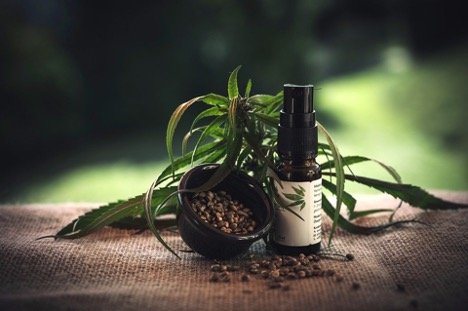CBD oil has become a significant component of the health and wellness space in just a few years. Once considered a schedule one narcotic, hemp-derived cannabinoid products are now 100% federally legal in the United States.
As the industry evolves, it is essential to understand the differences between CBD, CBC, and THC because they are the most prominent cannabinoids. CBD may be the dominant cannabinoid in your product, but it is far from the only important compound derived from hemp.
CBD Vs. CBC
While CBD and CBC have significantly different benefits, both cannabinoids have the same precursor, CBG. During the plant’s lifecycle, CBG is converted primarily to other cannabinoids like CBD and THC. However, as the demand for CBC grows, breeders are experimenting with new ways to develop plants that convert more CBG into CBC.
The two cannabinoids are also similar because they are both non-intoxicating. Meaning the compounds will not produce a ‘high’ after consumption. CBD and CBC do affect the receptors in the central nervous system, brain, and throughout the body, but the interaction isn’t as direct as THC.
Another critical difference between CBD and CBC is our knowledge. While not enough cannabis research is currently available in general, the number of studies with CBD and THC dwarf the data available for CBC.
CBD Vs. THC
CBD and THC differ primarily because CBD does not deliver intoxicating effects, significantly reducing motor skills, short-term memory loss, and trouble processing information. Both cannabinoids have some overlapping benefits while other effects are drastically different. For instance, THC is used by many people to increase their appetite. Certain drugs can affect one’s hunger to the point where they are not getting the nutrients they need to function. Using THC can increase their appetite to a healthier level. CBD has proven to reduce cravings because it acts oppositely regarding the ECS’s role in regulating our inclination to eat.
CBC Effects
We have much to learn about the benefits of CBC cannabinoid; however, preliminary data suggest CBC use could improve the lives of a sufficient number of people. The most interesting potential effect of using CBC is its ability to promote cellular growth, known as neurogenesis. Scientists report in a 2013 study that CBC positively impacts neural stem progenitor cells (NSPCs). The cells are essential in healthy brain recovery and growth. In the future, we could see CBC incorporated into a treatment for brain injuries, but we need much more research and data before we see CBC used in a clinical environment.
Like all cannabinoids, we are far from in a position to definitively suggest medical benefits, but more research is being done to evolve our understanding. Unfortunately, lesser-known and abundant cannabinoids like CBC, CBG, and CBN have not gotten the attention of more widely used compounds. Thankfully, since hemp-derived products have been legalized, the demand for cannabinoids like CBC has risen significantly and subsequentially furthering our understanding.
CBC has other benefits closely related to those of CBD, including improving mood and responding to pain. However, many users take CBC during the day rather than CBD because it isn’t known to have sedative properties.
What is CBC Good For?
CBC is great to take during the day to improve mood or in the morning if you are intermittent fasting. CBD and CBC have been shown to lower cravings and help users get through mornings with an empty stomach. We suggest trying CBC in the same way you would with other cannabinoids, starting small and working your way up to larger doses.
CBC Products
Many CBC products are available online, including CBC pills, gummies, and oils. You should take the same precautions finding a reputable CBC retailer you would shopping for CBD: check lab tests, reviews, extraction methods, and the source of hemp.




